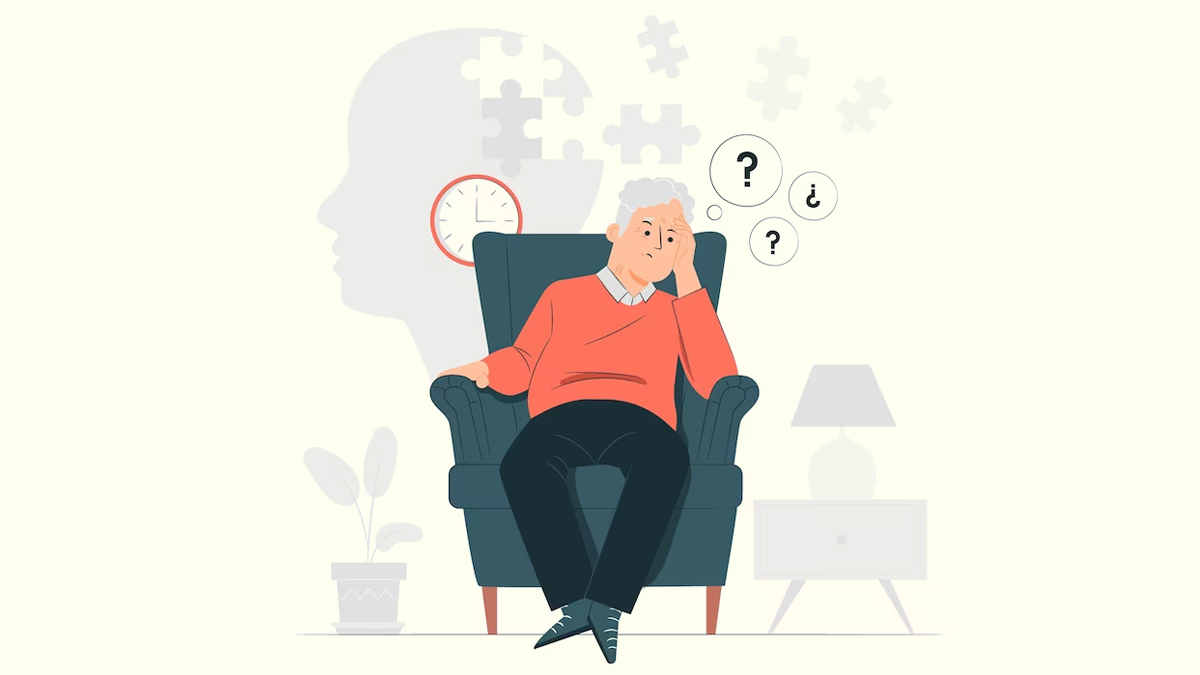
While most people believe Alzheimer’s and dementia to be the same, it is partially true. Alzheimer’s is a type of dementia which affects cognitive and behavioural abilities of a person. According to statistics, about 8.8 million Indians above 60 years have dementia which accounts for 7.4% of the total population. Alzheimer's cases, in particular, have increased drastically over the years. In 2011, 1.5 million Indians were diagnosed with Alzheimer's which has now crossed the 2 million mark and this number is estimated to cross 3 million by 2030. This shows how grave this condition is and the dire need for awareness. This World Alzheimer's Day, Onlymyhealth wants you to become aware and vigilant of this brain disease that is affecting our beloved senior citizens.
Table of Content:-
What Is Alzheimer's Disease?
Dr Kailas Mirche, Neurologist, Citizens Specialty Hospital, Hyderabad defines Alzheimer’s as a brain disease that causes a steady decline in memory and thinking abilities which over time, affects other cognitive powers. This condition is prevalent in seniors aged above 60 years but its early onset may be seen after 30s.

What Causes Alzheimer's?
This brain disorder is named after Dr. Alois Alzheimer who first identified this condition in 1906. Alzheimer's is caused when there is an abnormal buildup of proteins- amyloid and tau in the brain that leads brain cells to die. For the uninitiated, brain cells are crucial for cognitive, thinking and learning functions. Damage to brain cells, can therefore, cause serious brain disease like Alzheimer's.
However, there are multiple medical theories for why Alzheimer's occur and scientists are still in a lookout for the main reason behind protein build up in the brain. They believe that different environmental, lifestyle and genetic factors trigger this condition over time.
Also Read: Expert Shares Tips For Alzheimer's Management At Home For The Elderly

Is Alzheimer’s hereditary?
This is one of the common queries about Alzheimer's. As mentioned above, some genetic factors do contribute to the onset of this condition. There is a certain gene(APOE) which is found to increase the risk. As per experts, if a person’s close family member has Alzheimer's, the risk of them getting it later in life is 10% to 30%.
What Are The Symptoms Of Alzheimer's?
While memory loss, poor concentration are the initial warning signs of Alzheimer's, the actual signs and symptoms vary and depend on the stage of Alzheimer's.
You can refer to this inforgraphic:

Symptoms of the initial or mild stage Alzheimer's
- Unable to express your thoughts
- Forgetting things and misplacing objects often
- Unable to solve easy problems
- Not able to plan or organise anything
- Facing difficulty in doing daily tasks
Symptoms of the moderate stage Alzheimer's
- Increased memory loss and frequent episodes of forgetfulness
- Feeling confused most of the times
- Facing problem in recognising loved ones
- Poor short-term memory
- Unable to solve easy maths problems
- Experiencing delusions
- Feeling anxious, agitates and depressed
Symptoms of the severe stage Alzheimer's
- Acute memory loss
- Unable to recall and recognise people and surroundings
- Need assistance to perform daily activities such as sitting, walking and using the bathroom
- Unable to communicate with people
Also Read: Sitting For Over 10 Hours A Day May 'Significantly' Increase Your Risk Of Dementia
Watch this video to differentiate between Alzheimer's and Dementia:
How is Alzheimer’s disease diagnosed?
For timely diagnosis of Alzheimer's, it is extremely important to watch out for the signs and symptoms especially in elderly who are prone to developing this condition. If memory loss is accompanied by two or more symptoms listed above, you must take them to a specialist for checkup and immediate medical assistance.
To diagnose the condition, doctor or healthcare provider will ask a few questions that can be answered by the caregiver. These would include medical history, general health, medications, behavioural activities, cognitive functions, to name but a few.

Depending upon the answers, doctor might ask you to get the patient run through these tests:
- Physical exam to test cognition and learning
- Neurological exam
- Mental status exam that includes an array of tasks
- Medical tests like urine and blood tests
- Brain imaging test- MRI, CT scan, PET test
Also Read: Digital Dementia: Tips To Deal With A Modern Day Health Crisis
How Is Alzheimer’s Treated?

Alzheimer's is a form of dementia that cannot be treated. There is no medication or treatment as of now that can completely cure Alzheimer's disease. This condition progresses with time and symptoms worsen. But you can control the progression to prevent the condition from getting worse. Medicinal courses and therapies along help in improving the quality of life of an Alzheimer's patient.
While the treatment would do its work, family members and caregivers can be the ultimate support system to motivate the person to overcome the hurdles. Having people you love and trust by your side during this time doubles up the chances of recovery.
Infographics by Khushi Goel
References:
https://www.alz.org/alzheimers-dementia/what-is-alzheimers
https://www.nia.nih.gov/health/what-alzheimers-disease
https://www.statista.com/statistics/944170/india-number-of-cases-of-alzheimer-s-disease-in-senior-citizens/
https://alz-ournals.onlinelibrary.wiley.com/doi/10.1002/alz.12928#:~:text=Highlights,in%20rural%20than%20urban%20areas.
How we keep this article up to date:
We work with experts and keep a close eye on the latest in health and wellness. Whenever there is a new research or helpful information, we update our articles with accurate and useful advice.
Current Version